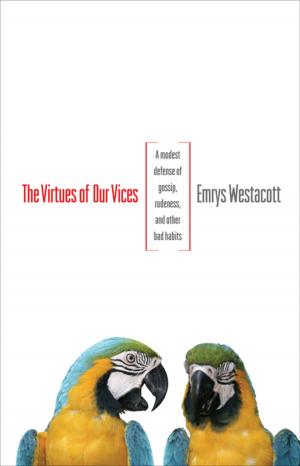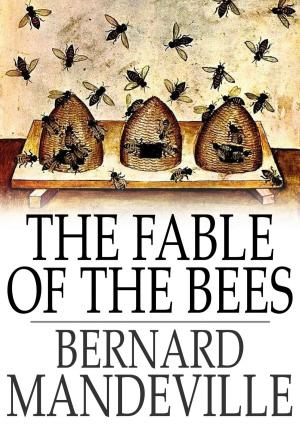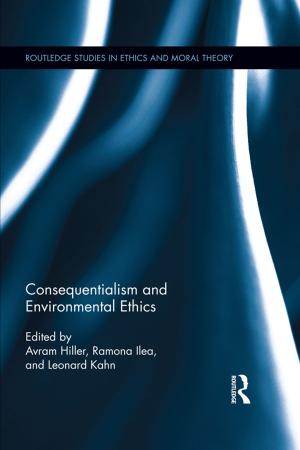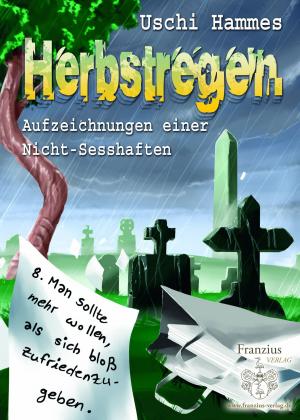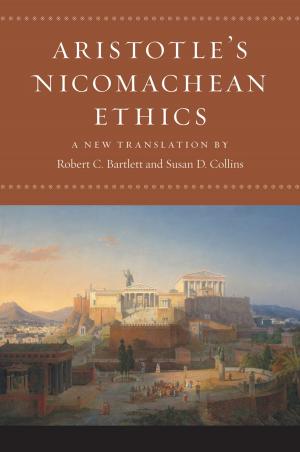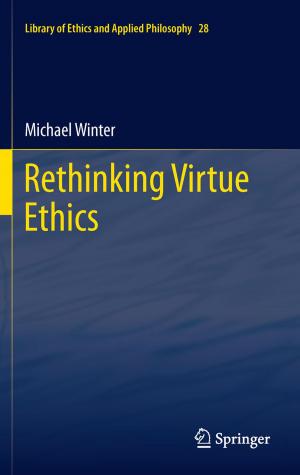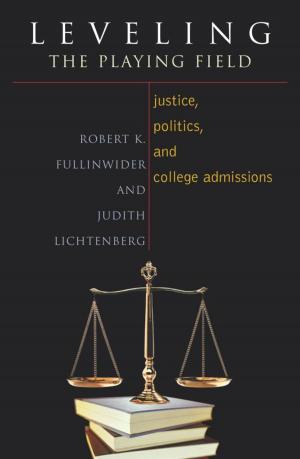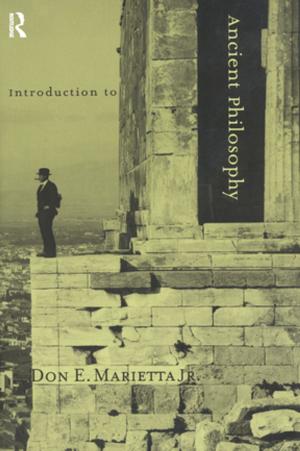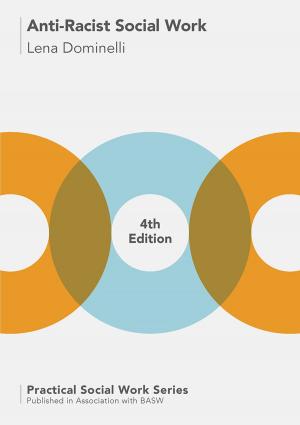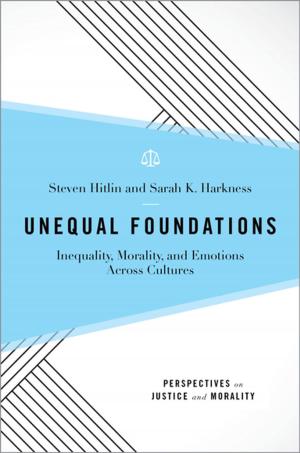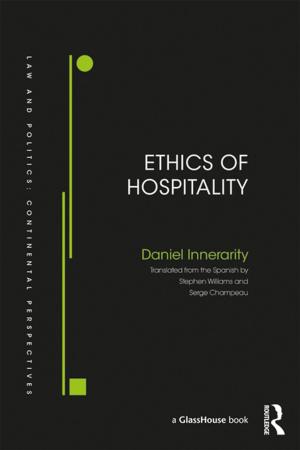Fate and Freedom Volume 2
Nonfiction, Religion & Spirituality, Philosophy, Existentialism, Metaphysics, Ethics & Moral Philosophy| Author: | Andrew Mason | ISBN: | 9780987425119 |
| Publisher: | AJM Publishing | Publication: | November 9, 2012 |
| Imprint: | Language: | English |
| Author: | Andrew Mason |
| ISBN: | 9780987425119 |
| Publisher: | AJM Publishing |
| Publication: | November 9, 2012 |
| Imprint: | |
| Language: | English |
Fate and Freedom Volume 2 builds on the paths of thought opened up in volume 1 with a series of investigations engaging significant figures in both modern and ancient, eastern and western thought.
'Energy and Freedom' uses Pierre Klossowski's thought-provoking book Sade My Neighbour as a spur to probe the ambiguous relationship between these two terms and the ambiguous status of desire in connection with both. Buddhist thought is deployed as a counterpoint, but under its obvious divergence from Sade some surprising parallels are found.
'Lafcadio Hearn and the Approach to Karma' examines Hearn's attempt to grasp this unsettling Buddhist theme via various western conceptions of pre-existence. These conceptions are not mere impediments but open up a negative path of insight into the distinctness of the idea of karma. Hearn is able to illuminate the latter much more in this negative way than when he asserts a direct accord between Buddhism and the science of his day.
'Gandhi' addresses the fact that Gandhi bases his creed of non-violent resistance on a faith in what he called "soul-force." Arguing that such a creed can equally be founded on wariness of such a force, I question whether Gandhi can sustain a clear-cut distinction between soul-force and brute force, and whether he can resolve the tensions between the metaphysical and moral aspects of soul-force.
While Nietzsche's thought attacks the principles of a faith such as Gandhi's, there is still a kind of faith involved in Nietzschean "love of fate" (amor fati). 'Nietzsche, the Child and the Thinker' locates the child in Nietzsche in a need to belong to fate's plexus and to be countersigned by the player of the cosmic game of will-to-power, and the thinker in his resolve to stand alone.
'Logic and Reality' proposes that reality itself, rather than thought or argumentation, is the original locus of logic. Hegel's approach along these lines is discussed, but the essay's main focus is Heraclitus, whom Hegel did not properly understand. The inner logic of Heraclitus' thought points not only to a chiasmatic logic of reality, but to a kind of reversal conditioned by and reactive to human comprehension of reality.
'Contributions towards an Energetics of Karma' proposes an understanding of karma in terms of an energetic relation of the individual to the whole as an energy system, and questions whether a moral interpretation of it is sustainable. This is then pursued via traditional Chinese philosophy, in particular the Dao De Ching. As with Heraclitus' rapport to the One and the Logos, the Daoist's rapport to the Dao must be more skeptical and agonistic than is outwardly avowed.
The final essay, 'Zeus, or the Emergence of the Law of Life among the Ancient Greeks,' asks what happens to the law of life when it becomes conscious of itself. As the instrument of a god it separates from life and stands over it, and this motivates a retrieval of an original, impersonal Zeus that just is the law of life by Heraclitus and others. But this generates new problems, and a way through them is sought via the concept of emergence. The law of life acquires emergent properties in response to the challenge to the natural order of human consciousness.
Fate and Freedom Volume 2 builds on the paths of thought opened up in volume 1 with a series of investigations engaging significant figures in both modern and ancient, eastern and western thought.
'Energy and Freedom' uses Pierre Klossowski's thought-provoking book Sade My Neighbour as a spur to probe the ambiguous relationship between these two terms and the ambiguous status of desire in connection with both. Buddhist thought is deployed as a counterpoint, but under its obvious divergence from Sade some surprising parallels are found.
'Lafcadio Hearn and the Approach to Karma' examines Hearn's attempt to grasp this unsettling Buddhist theme via various western conceptions of pre-existence. These conceptions are not mere impediments but open up a negative path of insight into the distinctness of the idea of karma. Hearn is able to illuminate the latter much more in this negative way than when he asserts a direct accord between Buddhism and the science of his day.
'Gandhi' addresses the fact that Gandhi bases his creed of non-violent resistance on a faith in what he called "soul-force." Arguing that such a creed can equally be founded on wariness of such a force, I question whether Gandhi can sustain a clear-cut distinction between soul-force and brute force, and whether he can resolve the tensions between the metaphysical and moral aspects of soul-force.
While Nietzsche's thought attacks the principles of a faith such as Gandhi's, there is still a kind of faith involved in Nietzschean "love of fate" (amor fati). 'Nietzsche, the Child and the Thinker' locates the child in Nietzsche in a need to belong to fate's plexus and to be countersigned by the player of the cosmic game of will-to-power, and the thinker in his resolve to stand alone.
'Logic and Reality' proposes that reality itself, rather than thought or argumentation, is the original locus of logic. Hegel's approach along these lines is discussed, but the essay's main focus is Heraclitus, whom Hegel did not properly understand. The inner logic of Heraclitus' thought points not only to a chiasmatic logic of reality, but to a kind of reversal conditioned by and reactive to human comprehension of reality.
'Contributions towards an Energetics of Karma' proposes an understanding of karma in terms of an energetic relation of the individual to the whole as an energy system, and questions whether a moral interpretation of it is sustainable. This is then pursued via traditional Chinese philosophy, in particular the Dao De Ching. As with Heraclitus' rapport to the One and the Logos, the Daoist's rapport to the Dao must be more skeptical and agonistic than is outwardly avowed.
The final essay, 'Zeus, or the Emergence of the Law of Life among the Ancient Greeks,' asks what happens to the law of life when it becomes conscious of itself. As the instrument of a god it separates from life and stands over it, and this motivates a retrieval of an original, impersonal Zeus that just is the law of life by Heraclitus and others. But this generates new problems, and a way through them is sought via the concept of emergence. The law of life acquires emergent properties in response to the challenge to the natural order of human consciousness.

